Assignment Earth, Environmental Journalism, Environmental Protection, Sustainable Living / 23.03.2011
Assignment Earth: Sustainable Winter Agriculture – The Joy Trip Project
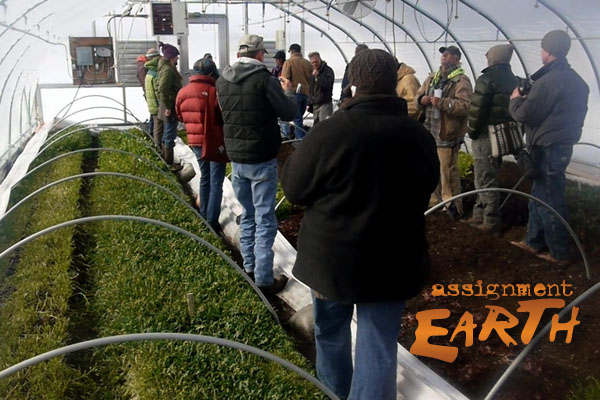 Making the growing season grow longer, that’s the idea for Daphne Yannakakis, an organic farmer in western Colorado. Along with husband Don Lareau on Zephyros Farm, they’re growing vegetables in wintertime as part of a study by Colorado State University. The vegetables grow under the protection of unheated green houses called high tunnels, which hold in heat stored by the Earth at night and capture solar heat during the day. They also provide protection from the wind. These farmers plant a variety of cold hardy vegetables at monthly intervals and record weather data electronically with custom software.
The data is collected from five farms across Colorado and will be compiled and made available to other small-scale farmers. Funded by the U.S. Department of Agriculture and called the Sustainable Agriculture Research and Education program or SARE, the study is intended to help small-scale farmers in the Rocky Mountains remain productive and profitable through much of the winter by utilizing high tunnels. Even when outside temperatures reach sub-zero extremes these simple structures allow vegetables to survive harsh winter conditions and enable farmers to grow more.
Making the growing season grow longer, that’s the idea for Daphne Yannakakis, an organic farmer in western Colorado. Along with husband Don Lareau on Zephyros Farm, they’re growing vegetables in wintertime as part of a study by Colorado State University. The vegetables grow under the protection of unheated green houses called high tunnels, which hold in heat stored by the Earth at night and capture solar heat during the day. They also provide protection from the wind. These farmers plant a variety of cold hardy vegetables at monthly intervals and record weather data electronically with custom software.
The data is collected from five farms across Colorado and will be compiled and made available to other small-scale farmers. Funded by the U.S. Department of Agriculture and called the Sustainable Agriculture Research and Education program or SARE, the study is intended to help small-scale farmers in the Rocky Mountains remain productive and profitable through much of the winter by utilizing high tunnels. Even when outside temperatures reach sub-zero extremes these simple structures allow vegetables to survive harsh winter conditions and enable farmers to grow more.


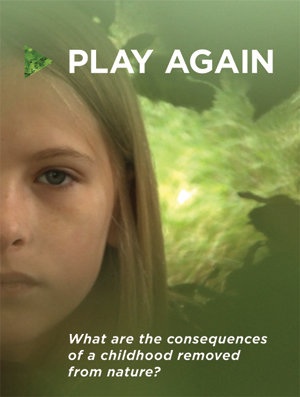 “The landscape of childhood has changed.” From the opening frames of
“The landscape of childhood has changed.” From the opening frames of 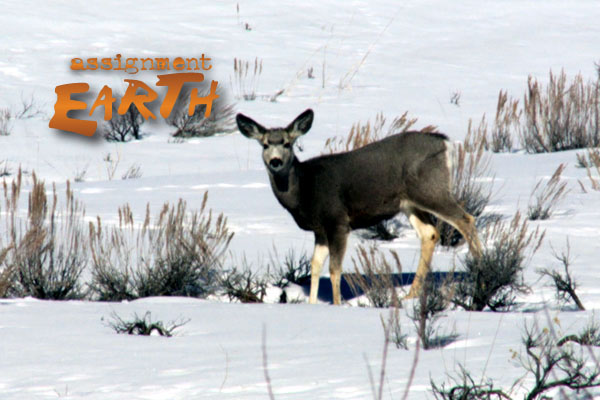 Collisions with automobiles make it pretty clear where
Collisions with automobiles make it pretty clear where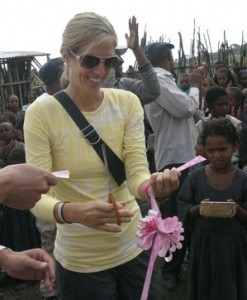 There’s hardly a storage of news to be had in our worldwide 24/7 media cycle. What’s remarkable is the sheer volume of information out there that tends to clog the pipe and make it difficult to find those articles that truly help to shape our thoughts. For those of us engaged in an active sustainable lifestyle there are several stories worth following this week that can both inspire and encourage our personal efforts to make the world a better place.
There’s hardly a storage of news to be had in our worldwide 24/7 media cycle. What’s remarkable is the sheer volume of information out there that tends to clog the pipe and make it difficult to find those articles that truly help to shape our thoughts. For those of us engaged in an active sustainable lifestyle there are several stories worth following this week that can both inspire and encourage our personal efforts to make the world a better place.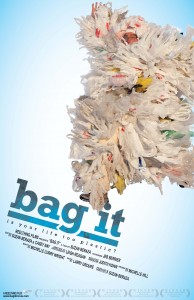 Several documentaries in recent years have made American consumers rethink the many products they purchase and…well… consume. Outrage over the seemingly irreparable harm imposed upon the planet and our personal health is compelling many to make proactive choices to rid their lives of plastic single-use disposable containers. The film
Several documentaries in recent years have made American consumers rethink the many products they purchase and…well… consume. Outrage over the seemingly irreparable harm imposed upon the planet and our personal health is compelling many to make proactive choices to rid their lives of plastic single-use disposable containers. The film 
You must be logged in to post a comment.